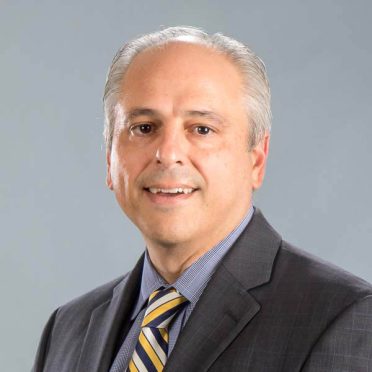Driven by conspiracy theories and heightened divisiveness, an angry mob attacked the nation’s Capitol Jan. 6, dealing a major blow to America’s already fragile psyche.
The shocking scenes of fellow Americans wearing red Make America Great Again hats and wielding pro-Trump flags as they rampaged through a national monument to democracy left many people feeling angry, sad and worried about what the future holds.
What some are calling one of the darkest days in American history left these questions: How did we get here, what is stoking the anger and what can we do about it?
“There’s no way to put this behind us,” said Sarah Lewis, Hartford HealthCare (HHC) vice president of Health Equity and leader of the system’s Diversity, Equity and Inclusion efforts. “There is no quick fix. We have to keep addressing this.”
“This” would be the discord and racism that has plagued the nation in recent years — with roots dating to America’s founding and the Civil War.
HHC Behavioral Health Network Physician-in-Chief John Santopietro, MD, said the violence that shocked the world was not surprising. He said America has never reconciled major conflicts buried in its past, including racism, and until it does so we will be susceptible to eruptions like the Capitol riot. He urged those who want to be part of the solution to not shy away from discussions about difficult subjects, engage and partner with the community and truly learn about our country’s history to understand the deep-rooted reasons for why society is the way it is today.
“Trauma in the past doesn’t go away by ignoring it, or glossing it over,” said Dr. Santopietro, who is spending time studying the Civil War and African American history since emancipation. “This (the Capitol riot) is living proof of that.”
Dr. Santopietro added that human psychology has “evolved” in the same way evolution has shaped people physically.
“Projection and denial have survived as mechanisms because they work,” Dr. Santopietro said. “But like anything, they have a dark side.”
That dark side was on full display Jan. 6. Immediately following the election of Georgia’s first Black senator and Democrats gained control of the Senate, the Capitol riot ensued, led by those who felt like they were wronged by a fraudulent presidential election, even though there is no such evidence.
Lewis said watching the belligerent extremists force their way into the building with little resistance from a small group of Capitol police and security, some of whom took selfies with the rioters, was in stark contrast to the aggressive stance against more peaceful Black Lives Matter protestors in Washington and around the country last summer.
“It’s so hard to watch,” she said. “Where is the grace given to Black people for just sitting in their cars, just sleeping in their beds, just trying to live their lives?”
Lewis said HHC can’t fix the world’s problems, but it is a healing organization that can make a difference with its ongoing Diversity, Equity and Inclusion efforts to improve relations with patients and colleagues.
Recent tangible examples include bringing COVID-19 testing and vaccines into the communities HHC serves, understanding that transportation may be a problem for some residents.
Lewis said just taking the time to listen to a colleague’s perspective on what happened Jan. 6,which may be different in someone from another background, can go a long way toward understanding.
“Reflection among colleagues is good for reconciliation and healing,” she said. “Just being there for one another, that shared moment of humanity, is so important.”



